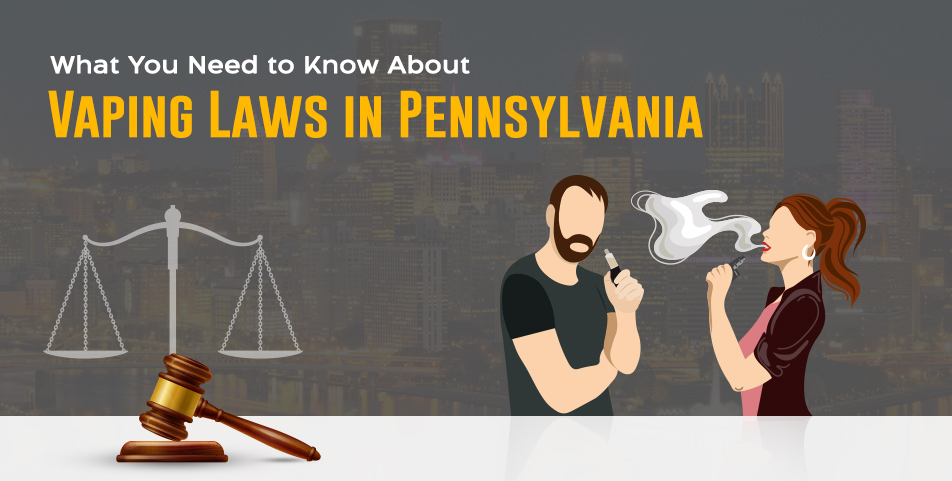
Pennsylvania is renowned for its diverse attractions and rich history. In recent times, vaping has gained immense popularity with millions adopting e-cigarettes and vape pens over traditional smoking. However, complex regulations and legislation govern its usage, sale, taxation, and age limits. Consumers, retailers, and manufacturers must comprehend these laws to ensure compliance and avoid legal issues.
So let’s dive into what makes up Pennsylvania’s vaping laws!
Table of Contents
The Legal Landscape of Vaping in Pennsylvania
The vaping legislative landscape in Pennsylvania constitutes an extensive framework regulating the sale, distribution, and usage of vaping products within the state. It is multifaceted, covering numerous aspects like age limits, licensing required for retailers, sale and distribution rules, taxation guidelines, and recent updates or amendments in vaping laws.
Age Restrictions
The sale of electronic cigarettes, vapors, or vapes is strictly prohibited to persons under 21 years in Pennsylvania, except those between 18-21 years if they are military personnel or veterans. Self-service displays of vapes are limited to licensed tobacco stores. Vending machines for e-cigarettes or vapes are not allowed in places accessible to individuals below 21 years. Retail licenses are mandatory for stores to trade e-cigarettes in the state. Furthermore, vapes and e-cigarettes cannot be used in academic institutions, and their vehicles and properties that are leased or owned by School Districts.
Sale and Distribution Regulations
To ensure compliance and safeguard public health, Pennsylvania imposes strict regulations on vaping product sales and distribution. These wide-ranging statutes govern various facets including permissible retail locations and packaging/labeling mandates for such products.
- Sales Locations: vape sales are barred within a defined proximity to academic institutions like schools, colleges, and other educational institutions. This distance restriction intends to limit minor's access and exposure to potentially harmful substances.
- Packaging and Labeling Requirements: stringent packaging and labeling requirements must be adhered to by retailers selling vapes in Pennsylvania. Typically, these obligations include prominently displaying health risk warnings, clearly listing nicotine content, and providing other relevant safety data. Officials formulated these stipulations to ensure consumers make informed choices.
Licensing Requirements for Retailers
Vaping product retailers in Pennsylvania must procure mandatory state licenses and permits to legally operate. This necessitates filing license applications, remitting applicable fees, and agreeing to renewal terms. By obtaining the required licenses, retailers demonstrate the retailer’s commitment to operating legally within set regulatory bounds.
Taxation Policies
Pennsylvania levies taxes on vaping products to regulate the industry and revenue generation efforts. These taxation policies are intended to regulate the industry and fund public health initiatives aimed at addressing the impact of vaping on society.
- Tax Rates: The tax rates vary based on factors such as product types and legislative decisions. Nonetheless, they assist in financing various initiatives countering pressing issues like underage vaping, support smoking cessation initiatives, and raise awareness about the potential risks regarding vaping risks.
- Collection and Utilization: Taxes collected from the sale of vaping products are utilized by the state government to support public health initiatives and address vaping-related issues. Pennsylvania utilizes vaping tax revenues to fund educational campaigns, enforcement drives, and research initiatives examining vaping's impact on overall public health.
Pennsylvania delegates vaping law enforcement to specialized state agencies. Non-compliance with these laws can result in severe consequences, including fines or legal action. Therefore, comprehending and complying with vaping regulations is imperative for entities and individuals to avert penalties. The underlying objective behind vaping governance is safeguarding public health, particularly among impressionable youth. Pennsylvania continuously strives to curb underage vaping and inform about associated health hazards through educational initiatives.

